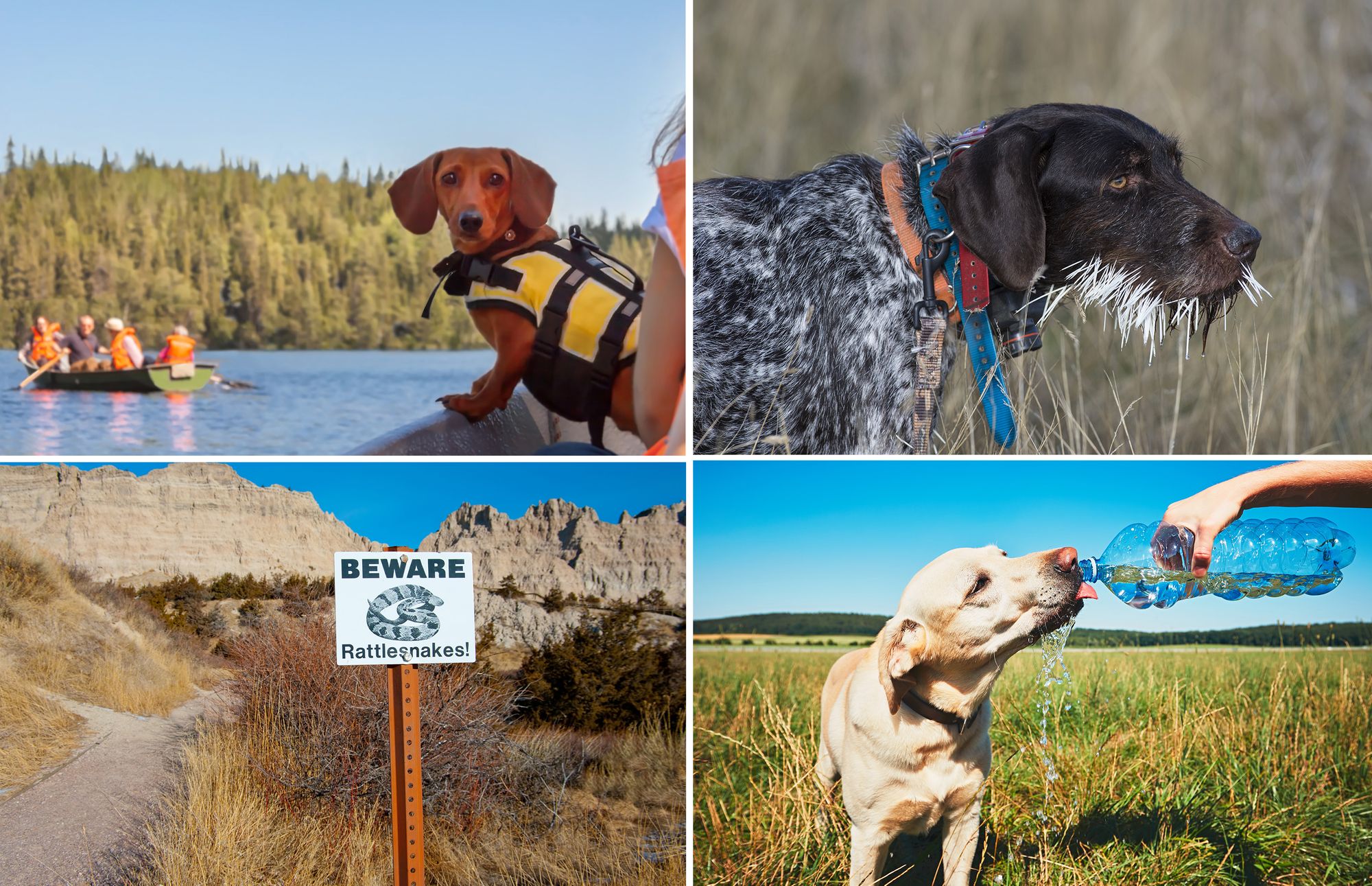7 Ways to Keep Your Furry Friends Safe in Wyoming's Great Outdoors

Summer is here, which means it is time to venture outdoors and enjoy our beautiful state. Whether it is camping, hiking, boating, or backpacking that speaks to you, it is always a great time to have your furry best friend with you. However, the great outdoors does present a risk of injury or even death to our pets. Here are some great ways to help keep them safe.
1) Staying on a Leash
The first step to having a safe adventure in the outdoors is to always keep your dog insight and under control at all times. A great way to do this is with a leash, collar, or through the use of voice commands.
2) Watch Out for Porcupines
Dogs love chasing porcupines, and can easily end up with a mouth full of quills. It is extremely important to make sure you remove all of the quills from their muzzles and mouths with needle nose pliers or a Leatherman tool. Make sure to bring your dog to your veterinarian for quills that are buried deep within the flesh.
3) Avoid Ticks
Ticks can also pose a serious threat towards our dogs, and could lead to Lyme disease. There are many lines of defense that can be used against ticks such as oral and topical medications, and collars to help ward them off.
4) Beware of Rattlesnakes
If your dog encounters a rattlesnake and is bit, take your dog to the closest veterinarian as quickly as possible to get the antivenom. To help avoid such encounters, there are trainers across the state that offer snake clinics to help teach dogs not to engage with snakes.
5) Bring Wire Cutters
Hunting traps and snares can be found throughout Wyoming, and your dog can easily be caught up in these traps. To try to avoid injury and possibly death, it is recommend to carry a pair of wire cutters to cut them free. Once they are free take them to a veterinarian as soon as possible.
6) Dangers of Overheating
Dogs can't sweat, so it is important to monitor your dog and keep them for overheating. Find them some shade, and always bring water for them to drink out of a bottle or collapsible bowl.
7) Carry a First Aid Kit
Your first aid kit should have Neosporin, bandages, scissors etc... Having a well stocked first aid kit is your first line of defense until you can get your furry friend to the closest veterinarian.
